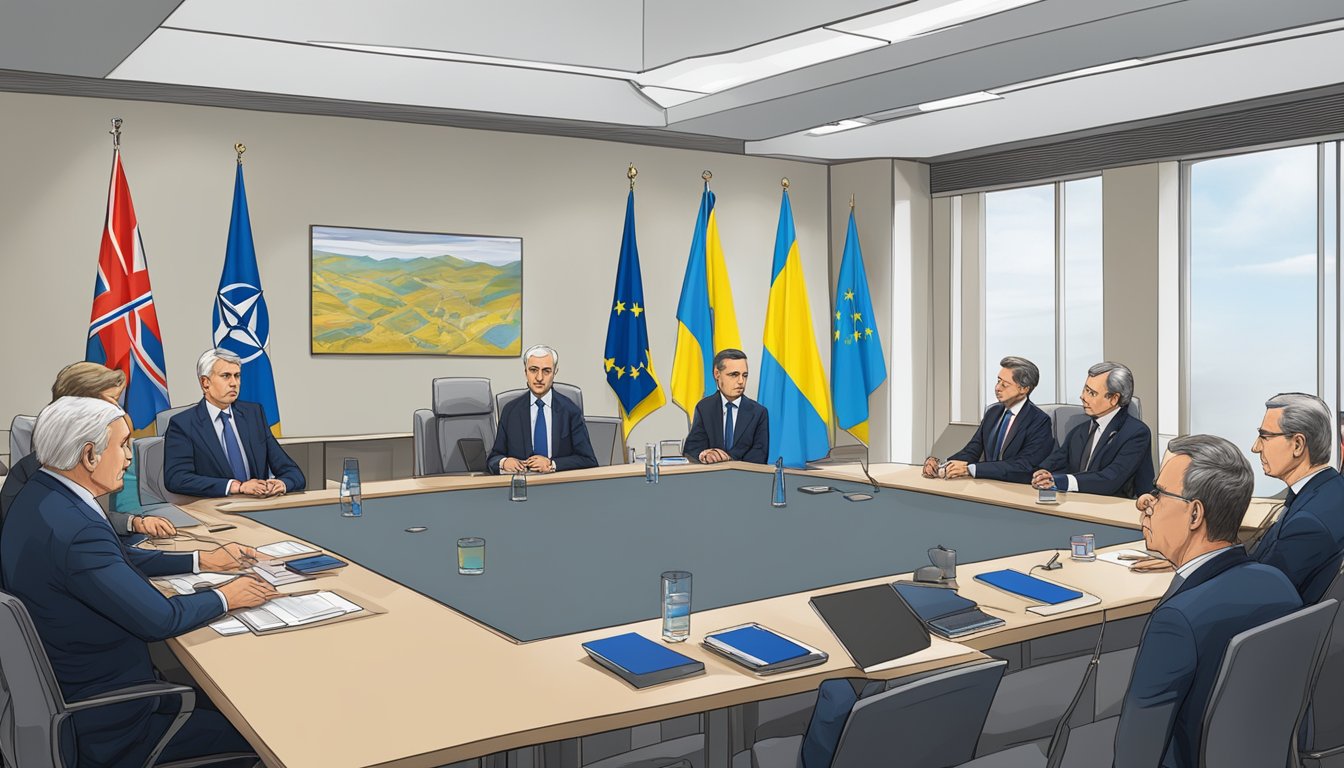BRUSSELS (AP) — Several NATO nations made it clear on Thursday that Ukraine and Europe must be part of any peace talks concerning the ongoing conflict.
This urgency was underscored as U.S. Defense Secretary Pete Hegseth dismissed allegations of American abandonment of Ukraine, especially amidst speculation about U.S. negotiations with Russia that might exclude Kyiv.
Concerns Among European Allies
The situation has sparked concerns among European allies.
Signals from the Trump administration hinted at plans for direct talks with Russia to settle the war, potentially sidelining Ukraine.
Furthermore, the administration’s stance against Ukraine joining NATO has raised alarms, suggesting that Europe needs to take up the mantle of its own defense against Russian threats.
European Defense Ministers’ Perspectives
U.K. Defense Secretary John Healey emphasized that any negotiations related to Ukraine must actively involve the nation itself, insisting it is vital to center discussions around Ukraine’s viewpoint.
Declaring the issue even more pressing, German Defense Minister Boris Pistorius stated that Europe’s inclusion is essential in these peace efforts, particularly since Europe will have to deal with the ramifications of the conflict.
Secretary Hegseth vehemently rejected the notion of a U.S. betrayal.
He stressed the intent to pursue peaceful resolutions, acknowledging a global interest in finding closure to the conflict.
Hegseth noted that pushing for a negotiated agreement is crucial, especially in light of Europe needing to ramp up defense spending, as many NATO members still fall short of the 2% GDP guideline.
The Role of European Nations
On the other hand, French Defense Minister Sébastien Lecornu criticized the focus on defense spending concerns, arguing that European countries are already enhancing their military budgets and acquiring weapons to assist Ukraine.
He raised some important questions about NATO’s future given the recent pivot of U.S. security measures toward Asia, despite the alliance’s longstanding strength.
Mark Rutte, NATO’s Secretary-General, highlighted the crucial importance of crafting a lasting peace to prevent further Russian aggression against Ukraine during the defense ministers’ meeting he convened.
Notably, Swedish Defense Minister Pål Jonson pointed out that European nations provided around 60% of the military aid to Ukraine last year, reaffirming the necessity of European engagement in ongoing discussions.
Moreover, Estonian Defense Minister Hanno Pevkur stressed the EU’s crucial role in enforcing sanctions against Russia and bolstering Ukraine’s defenses, pointing out the pressing need for European involvement in peace negotiations.
He warned that without proactive participation, any agreement reached could be fragile at best.
Source: Militarytimes

